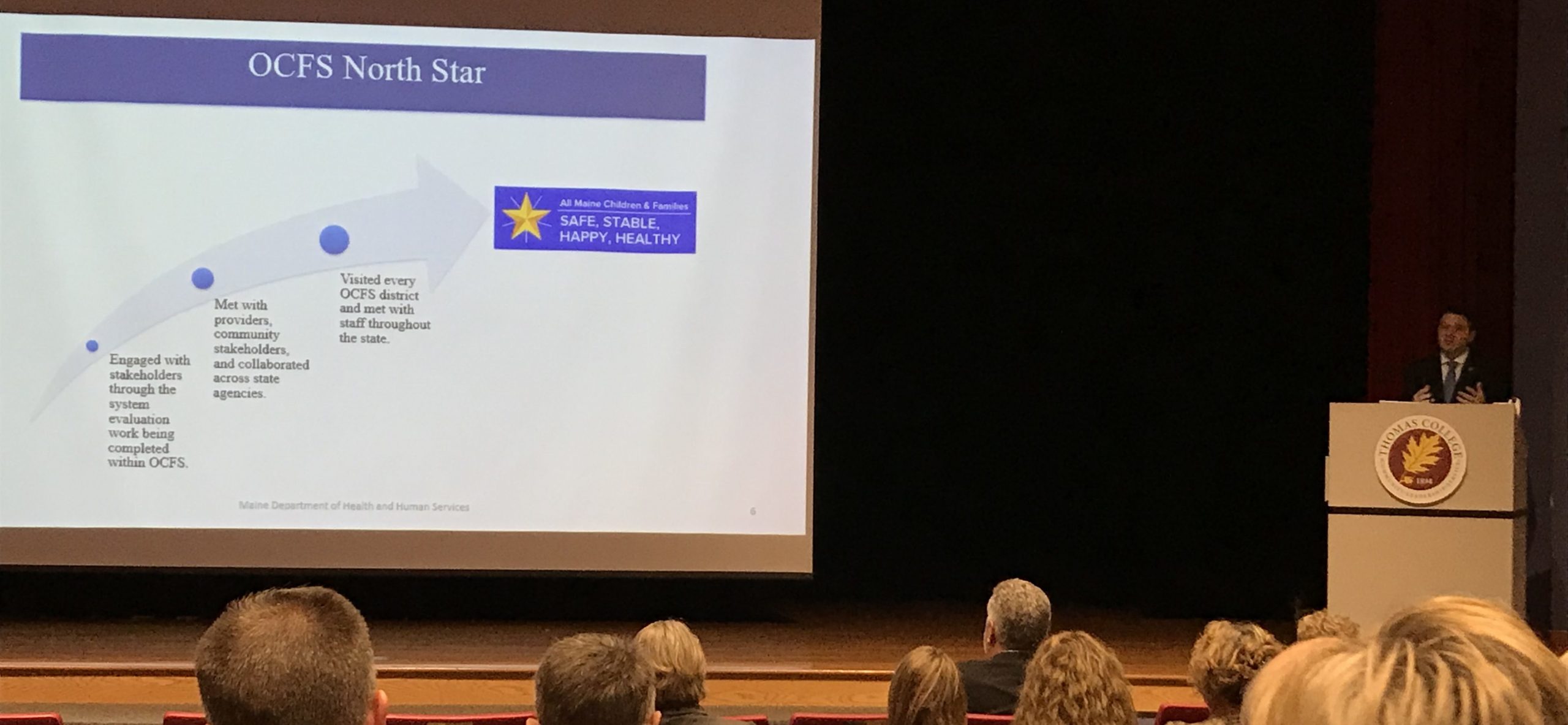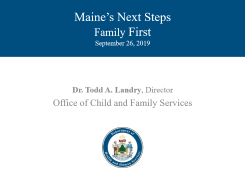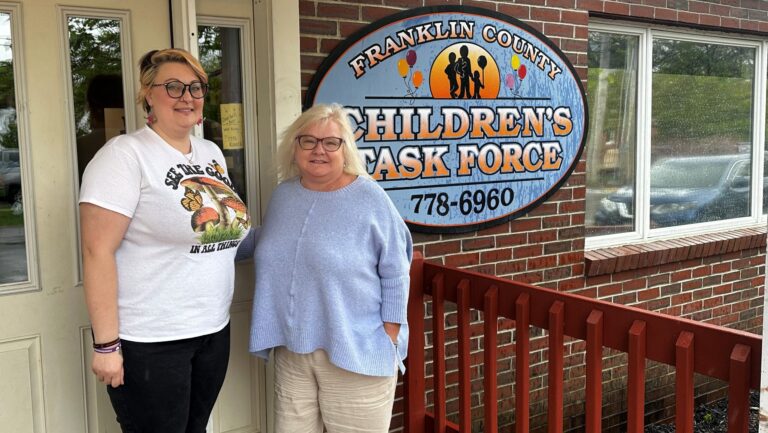John T. Gorman Foundation sponsors an event to inform Maine stakeholders on the Family First Services Prevention Act, a new federal child welfare law aimed at strengthening at-risk families

The stability, emotional connection, and support a child receives from their family form the foundation for well-being and future success. Yet, many families struggle at times to offer these essential building blocks or even to provide a safe environment for their children. In these difficult situations, swift steps must be taken to ensure that children can live safely in a home that offers their best chances to thrive.
Placing a child in foster care is one option. But evidence shows that many vulnerable children can be better served by finding ways for them to remain safely with their families. And with the right kind of interventions, parents and families can overcome their challenges to make this possible. This widely recognized understanding in the field has not, until recently, been reflected in federal policy. Casey Family Programs reports that for every $7 spent on foster care, only $1 is spent on helping prevent children from being taken out of their homes.
That’s about to change, and work is underway in Maine to take advantage of a policy shift that has great potential for strengthening Maine families.
Event Informs Stakeholders at Key Time for Child Welfare in Maine
With support from the John T. Gorman Foundation, the Maine Office of Child and Family Services (OCFS) held a September 26 seminar for stakeholders on the Family First Services Prevention Act. Passed by Congress in 2018, the law reforms federal legislation governing child welfare. Like other states, Maine is currently developing a plan to implement the legislation.
As part of that work, the event sought to inform stakeholders about shifts in the law and solicit their participation in the plan’s development. Foundation support helped bring Tracey Feild—a national expert in child welfare—to Maine so she could share her expertise. Daniel Despard of Casey Family Programs, another key sponsor of the event, contributed his national insight as well.
The new law comes as OCFS is also working to advance state-driven efforts to improve outcomes for the children and families it serves. OCFS Director Dr. Todd Landry briefed the audiences on strategies the state is pursuing specifically in the area of child welfare—the goals of which are improved safety and stability for children, new tools to build family well-being, and better training and support for OCFS staff. The agency has also made steps toward greater transparency, posting a data dashboard on its website with real-time statistics on all areas of its work.
Legislation Focused on Keeping Families Together
Feild was honest in her assessment of Family First. “This is the most significant child welfare legislation since 1980,” she said. “There are a lot of opportunities in the law, but the potential could get lost in the implementation.” To capitalize on the law’s positive advancements, the state will need to develop detailed plans and meet a number of new guidelines.
For decades, federal funds have centered on providing foster care—the costs of case management, essentials needs for children in state care, and the recruitment, training, and supervision of foster caregivers. States, however, were not able to receive funding to help prevent a child from being removed from their home by providing services to their family.
The Family First Act, therefore, is a major shift in putting greater focus and funding behind prevention.
When the state determines that a child is at serious risk of removal from their home, it would now be able to receive a federal reimbursement for half the costs of providing an evidence-based strategy to strengthen the family. With the goal of keeping families intact, services might include mental health and substance use treatment, intensive parenting skill building, and counseling. Importantly, these services would be available to the children as well as their parents or kinship caregivers. There are no family income-eligibility requirements for reimbursement—a departure from current law—and no cap on the total amount of federal funding.
The law takes other steps to keep children in family settings as well. These include opportunities to strengthen kin and foster family care, and new limits to protect against the unnecessary placement of youth in group and residential treatment settings. For youth who do need to be placed in residential treatments, there are new requirements to ensure a high standard of care, such as trauma-informed practices, on-site clinical staff, family outreach and involvement in treatment, and documentation on why such a placement is necessary.
Next Steps for Implementation
Benefits of the law do come with stringent requirements. “States have a great opportunity, but it’s not going to be easy,” Feild said.
Among other requirements for federal funding, the state must have an approved implementation plan, select a majority of its prevention strategies from a list of “well-supported” certified practices, and track comprehensive data on the children and families it serves.
Landry emphasized to advocates, family services providers, and other stakeholders in the room that the state is still in the initial stages of drafting a plan and there would be future opportunities for their feedback and involvement. “The only way we’ll build a solid plan is with your assistance,” he said, inviting them to serve on one of several planning teams.
The John T. Gorman Foundation was privileged to have a role in helping jumpstart a conversation that will have important repercussions for Maine families.



